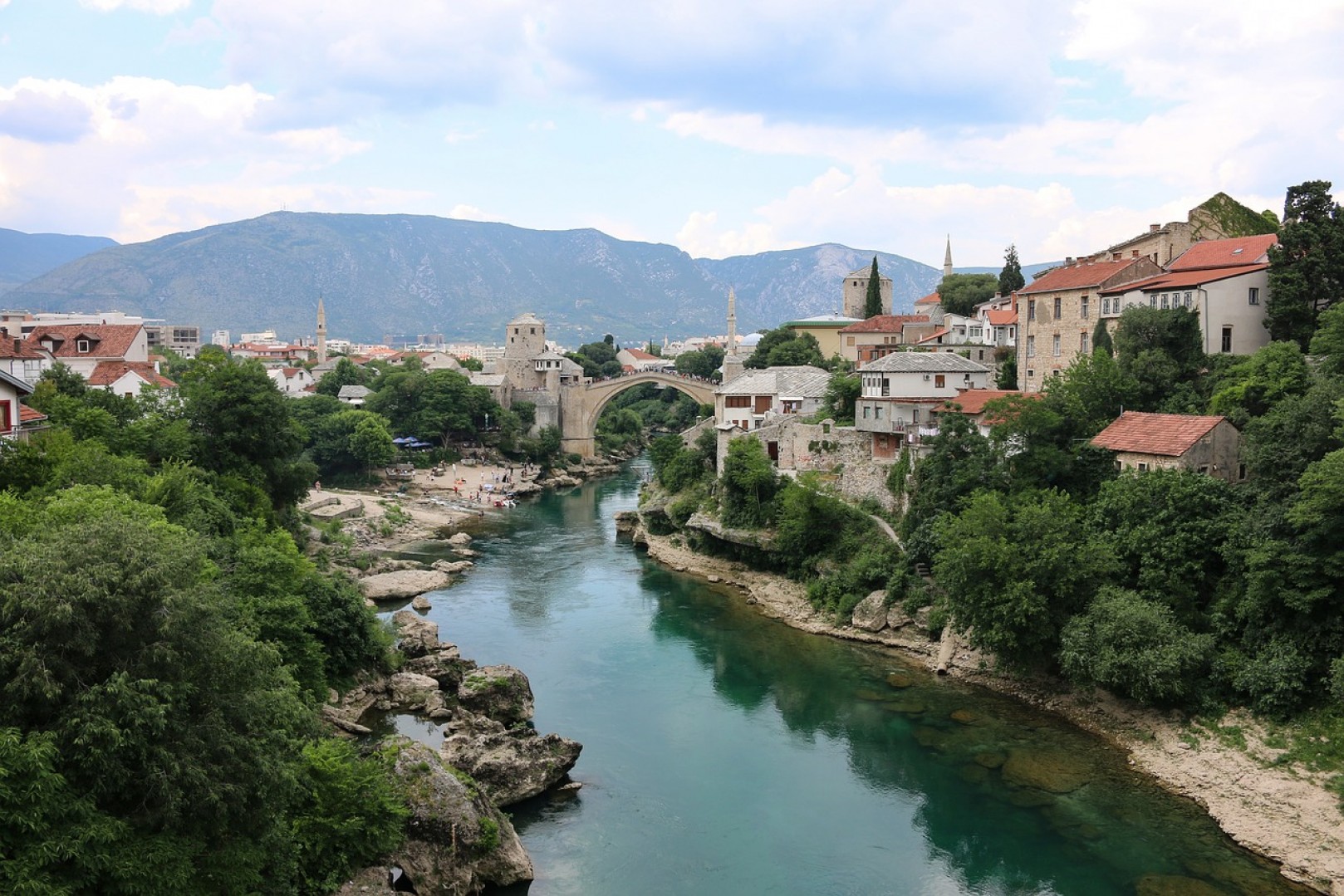
The Roma and Jewish autochthonous, national minorities are both living in todays Bosnia and Herzegovina, with looking back of a long history in the regions of today state of Bosnia and Herzegovina. According to the Constitution of Bosnia and Herzegovina, which was worked out during the Dayton Agreement, national minorities such as the Roma or Jewish cannot be voted for the upper chamber of the Parliament, nor the tripartite Presidency, because these are reserved for the three nationalities, the Bosniaks, Croats, and Serbs.
The Constitution of Bosnia and Herzegovina in accordance with such international and United Nation proposed conventions as the Universal Declaration of Human Rights, the Universal Declaration on the Rights of Persons Belonging to National or Ethnic, Religious and Linguistic Minorities. The Constitution of Bosnia and Herzegovina clearly states under article I. (7.) the citizenship and under article II. (4.) that no one should be discriminated by their gender, race, colour, language, faith, political or any thinking, or their national or social status. With these laws implemented in the constitution, on the other hand the problem arise. Although article 4 (2) about the elections for the Nation House of Representatives clearly states that electorates maybe be elected from each ethnicity, bigger problems show on a higher level of the legislative circles. The upper chamber of the parliament, the House of Peoples of Bosnia and Herzegovina, where the 15 candidates are elected from the House of Peoples of the Federation of Bosnia and Herzegovina and the National Assembly of the Republika Srpska. From the 15 electorates 10, 5 Bosniaks and 5 Croats, are elected by the House of Peoples of the Federation of Bosnia and Herzegovina and 5 Serbs electorates by the National Assembly. Hereby the law, article 4 (3) about the elections clearly states that these seats are clearly reserved for the 3 so-called constitutional ethnic groups, the Bosniaks, Croats and Serbs. In the case Presidency of Bosnia and Herzegovina, which serves as the highest body of that states, a three member body the constitution states the same. Article 5 states that these seats may be reserved for one person from each nationality.
BACKGROUND
The 1995 Constitution of Bosnia and Herzegovina, created as part of the Dayton Agreement which ended the 1992–95 Bosnian War, included power-sharing provisions which provided that posts in the tripartite Presidency of Bosnia and Herzegovina and the Hose of People (upper house of the national parliament) were reserved for ethnic Bosniaks, Bosnian Serbs and Bosnian Croats only. Two citizens of Bosnia and Herzogovina, Dervo Sejdić and Jakob Finci, who are of Roma and Jewish ethnicity submitted in December 2009 cases to the Grand Chamber of the European Court of Human Rights about the violations and constitutional discrimination of other ethnicities, that are not either Bosnian, Croatian, or Serbian. Sejdić and Finci v. Bosnia and Herzegovina (27996/06 and 34836/06) two cases the were merged into one, the court in the first judgment found a violation of Article 14 of the European Convention on Human Rights (ECHR) taken in conjunction with Article 3 of Protocol No. 1.
LEGAL DECISION AND OUTCOMES
The Court found that applicants' ineligibility to stand for election to the House of Peoples violates Article 14 of ECHR (ban of discrimination in the field of Convention rights) taken in conjunction with Article 3 of Protocol No. 1 (free elections), by 14 votes to 3, and that their ineligibility to stand for election to the Presidency violates Article 1 of Protocol No. 12 (general ban of discrimination), by 16 votes to 1.
The Constitution of Bosnia and Herzegovina in accordance with such international and United Nation proposed conventions as the Universal Declaration of Human Rights, the Universal Declaration on the Rights of Persons Belonging to National or Ethnic, Religious and Linguistic Minorities.
OPINIONS IN RECOMMENDATIONS OF THE RESPECTIVE MONITORING BODIES OF THE COUNCIL OF EUROPE
Already in the year of the submission of the cases, the Council of Europe advised in their opinion on the State Report of Bosnia and Herzegovina on the critical situation of the national minorities and case of Dervo Sejdić and Jakob Finci Stating:
“These forms of discrimination against persons belonging to national minorities, which are set out in the legislation, raise issues of compatibility with the principles of Article 4 of the Framework Convention. The legitimate objective of ensuring fair and balanced representation of the constituent peoples should not result in excluding from political representation those who do not belong to the constituent peoples, and in particular, persons belonging to national minorities, as spelled out by the Venice Commission in its Opinions of March 2005 on the constitutional situation in Bosnia and Herzegovina and the powers of the High Representative, and of April 2006 on the draft amendments to the Constitution of Bosnia and Herzegovina.”
In the reaction to the 2014 State Report presented by Bosnia and Herzegovina, the Council of Europe again reflects in the Opinion on the case of Devro Sejdić and Jacob Finci stating:
“The Advisory Committee observes that the Sejdić and Finci judgment of the European Court amendments to be made to the Constitution of Bosnia and Herzegovina. The necessary process of executing this judgment accordingly also creates an opportunity to rectify the language used to refer to national minorities in the Constitution of Bosnia and Herzegovina.”
To summarize everything: even though The European Court of Human Rights found issues in concern to discrimination of national minorities and ruled in favor of Dervo Sejdić and Jacob Finci about the Constitution of Bosnia and Herzegovina the steps to change the paragraphs and resolve these problems are still waiting to be taken.